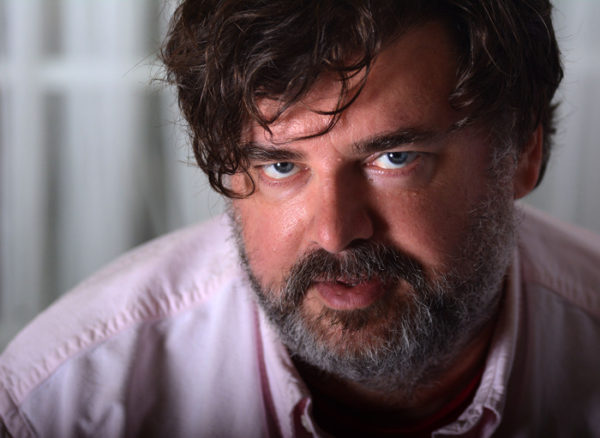
Please introduce yourself and your book(s)!
I am an author and playwright from Atlanta, Georgia. I’m a graduate of Georgia State University and New York University’s graduate writing program. I published my first novel in 2007, an extremely long work called The Long-Timers, a fantasy and science fiction work about people who live for thousands of years. I have since republished the stories as separate volumes focusing on specific characters.
My most recent work has been closer to home, set in Atlanta and Georgia. Late in 2018, I published Rebecca, Too, about a woman who wakes up from a car accident thinking she’s someone else. The previous year, I was the winner of The Essential Theatre’s Play Writing award and had my full-length play, Another Mother, produced at their festival in my home neighborhood of West End at the building that once housed the library where I learned to read as a kid. I also published a volume of stories entitled Atlanta Stories: Fables of the New South, about people coming to Atlanta. In addition, I’ve published two books of essays, The Cheese Toast Project and Killing Babies, and a book of stories Freedom and Consequence.
What is/are the story(ies) behind your book(s)?
Rebecca, Two started as a twenty minute screenplay requested by an Atlanta actor who saw some sketches I wrote for Sketchworks Comedy and while she didn’t use the screenplay, the storyline I developed for it became the basis for the full-length play several months later. A line in Rebecca, Too influenced Another Mother, and developing that play helped me when I turned Rebecca, Too into a novel. Many characters and situations have come from those works and I refer to the body of work as the Expanded Universe of Fictional Atlanta. Much of my work now focuses on Atlanta and Georgia.
What inspires/inspired your creativity?
I’m influenced by many things, plays, television shows, fiction and non-fiction, artwork. One of my favorite pastimes is to wander around the High Museum when hardly anyone is there. Music also inspires me. Being in the woods also inspires me. I worked up the background on a character that I later developed into a story while walking in the woods at Stone Mountain one morning.
I was once inspired by television shows I was watching. I’ve developed many script treatments for characters who appeared in shows that are no longer on and may someday try to develop some for the stage with different names and histories.
How do you deal with creative block?
My best remedy is to take a long walk and let my mind wander. I’ve come up with many stories walking in the woods at Stone Mountain, and I pay tribute to that in Rebecca, Too. I also have several projects going at the same time, so when one cools off, I’ll switch to another one.
What are the biggest mistakes you can make in a book?
Not taking the time to finish the story. I write quickly and am anxious to get my work out and sometimes that can lead to lots of errors or sending something to the printer before I’m totally satisfied with it. Printing is expensive and having to do rewrites just adds to that. I’m trying to be more patient these days. Plus, I have someone to edit my work.
Do you have tips on choosing titles and covers?
For me, both come organically from the subject matter and story. A lot of times I have great titles just waiting for stories to go with them. The best titles should catch the reader’s attention and make that person want to pick up the book and the cover should be suggestive of the content while catching the reader’s eye.
How do bad reviews and negative feedback affect you and how do you deal with them?
I consider the source and what the person is saying. Criticism which comes from an actual reading of the work can be helpful as it can tell a writer if the message is getting through. A lot of the criticism on the Internet is negative without a purpose and I ignore that, or if the person being critical has an obvious agenda or axe to grind.
How has your creation process improved over time?
I’ve gotten to be a better writer and I’ve learned better how to get my ideas into a written format. What I’ve learned is that the story has to be there. Once I have the story, I can translate it into any form, story, novel, or play.
When I was a student at NYU, I mainly wanted to show my classmates what a wonderful writer I was and bored them for several semesters with excerpts of a novel I was writing. My final writing instructor finally told me if I brought it again, he wasn’t going to read it and gave me an assignment comparing two characters. I would not say I got the most out of my time there. It’s when I stopped writing for attention and started caring about the process that my writing took on the necessary focus.
What are your plans for future books?
I plan to continue expanding my fictional universe to include more characters and situations and to expand the stories of those I’ve already introduced. I’m working on a follow up to Fables of the New South and Rebecca, Too, and developing stories on characters mentioned in them or otherwise connected.
Tell us some quirky facts about yourself
When I was a kid, I thought I had the power to change traffic lights by concentrating on them. Since I’ve started driving, I’ve realized I don’t actually have that ability.
Learn more at http://gmlupo.com